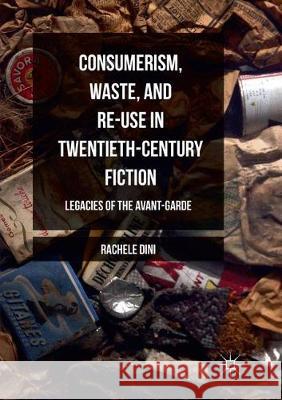Consumerism, Waste, and Re-Use in Twentieth-Century Fiction: Legacies of the Avant-Garde » książka
topmenu
Consumerism, Waste, and Re-Use in Twentieth-Century Fiction: Legacies of the Avant-Garde
ISBN-13: 9781349954964 / Angielski / Miękka / 2018 / 253 str.
Kategorie:
Kategorie BISAC:
Wydawca:
Palgrave MacMillan
Język:
Angielski
ISBN-13:
9781349954964
Rok wydania:
2018
Wydanie:
Softcover Repri
Ilość stron:
253
Waga:
0.32 kg
Wymiary:
21.01 x 14.81 x 1.42
Oprawa:
Miękka
Wolumenów:
01
Dodatkowe informacje:
Bibliografia
Wydanie ilustrowane
Wydanie ilustrowane











